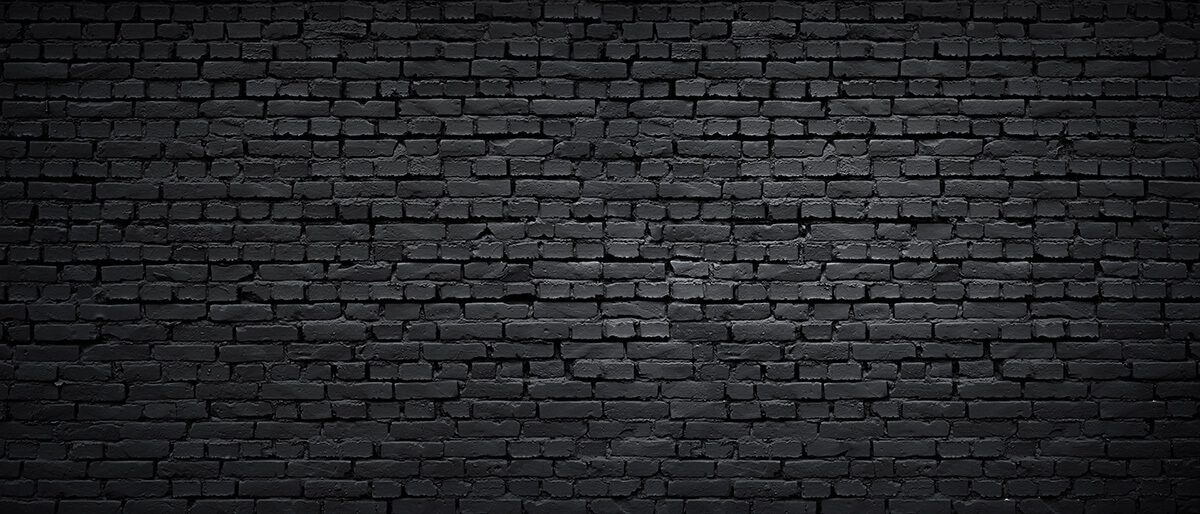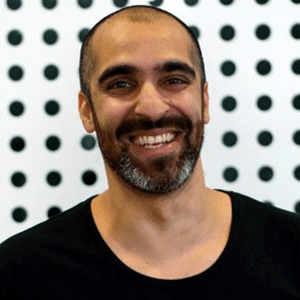

#15: What can you do as a leader to get into the right zone and perform at your optimum?
Sven Hansen makes the case that leaders need to make strategic investments in building their resilience resources.
Sven covers the important concepts for today’s leaders who need to perform at their optimum. Looking at resilience – applying sports science to good business and leadership.
Sven and Stephanie in this podcast discuss:
- The Importance of sleep and the impact of stimulation overload on leadership and critical decision making.
- Presence & Flow and the impact it can have on you as a leader and how to structure your day for flow.
- Self-awareness check-ins and more.
Stephanie: Hello, and welcome to TEC Live. Stephanie Christopher here. Chief executive of The Executive Connection. TEC connects CEOs, executives and business owners to the world’s largest business leader network. We’re committed to delivering actionable insights, accelerating business performance, and optimising decision-making.
I’m so pleased today to be joined by Dr. Sven Hansen. And this is going to sound pretty full on, but it’s true. Sven Hansen changed my life. So Sven is the founder of the Resilience Institute. From a medical family, Sven joined Pathfinders as special forces team in South Africa before completing medicine. His passion for sport and flow took him into sports medicine and a personal practice in resilience, asking if organisations might be interested in applying sports science to good business and leadership. Sven began a corporate health business in 1988. He completed his MBA in 1993 and set about building an evidence-based integral and practical solution to sustainable performance in life, sport, and business.
So for over 20 years Sven has worked extensively with high performance sport, professional firms, banks, corporates, government, universities and schools. He leads the development of the Resilience Institute’s methodology and is an experienced executive coach, keynote speaker and leadership trainer. Sven Hansen, welcome to TEC Live.
Sven: Hi Stephanie. Great to be back with you again.
Stephanie: Great to see you again. So let’s get to how you actually changed my life and I think we should talk about sleep. So we were talking before about the importance of sleep. Do you want to elaborate on that a little bit?
Sven: Very topical, and I guess it’s in the media everywhere. I think the way we look at it simply as when you get the right sleep for your body, you wake up a better version of yourself physically, emotionally, mentally. Talking about leadership, getting that good night’s sleep is critical for your impact on your people. People trust you less if you’re even 20 minutes sleep deprived.
Stephanie: How can they tell?
Sven: A range of signals. I mean, often just the way your eyes might look or your face or your skin. Often what you say. And probably most importantly is when you don’t sleep correctly, your facial expressions are muted and you also don’t resonate with the facial expressions of others. So you’re almost emotionally illiterate as you become more sleep deprived.
Stephanie: Even with 20 minutes less sleep than your optimum sleep?
Sven: Yes. So it’s very precise now. They really think that each person has a relatively fixed allotment of sleep need, which may be somewhere between seven and eight hours.
Stephanie: And how can you tell your own allotment?
Sven: The easy way is to go camping.
Stephanie: Yes, I love that.
Sven: Yeah.
Stephanie: I’m never going to do it, Sven.
Sven: And probably the second easiest way is just get yourself a Fitbit.
Stephanie: Yeah.
Sven: One of these sleep trackers. They’re great. And if you just follow your sleep pattern for roughly 10 days, you’ll be able to see what your body keeps trying to get. You’ll notice what time you fall asleep and what time you wake up. And it’ll keep balancing itself around that perfectly.
Stephanie: Around that time. And so is that one of the reasons also that you tend to wake up at the same time every morning?
Sven: Absolutely.
Stephanie: Even if you have a late night, that’s the problem. You wake up still at the same time and then…
Sven: That’s not the problem.
Stephanie: Oh, okay.
Sven: That’s actually the solution.
Stephanie: Okay, go on.
Sven: So one of the many things about sleep is that as a primate, for 60 million years, we’ve been getting up at the blue light of dawn. And that blue light has a very powerful biological effect through your eyes.
Stephanie: Yes.
Sven: It releases melanopsin at the back of your eye and that resets your biological clock. So every day you wake up to that blue light, your clock synchronizes. Every time you miss that sleep or sleep in, your clock desyncrhonizes.
Stephanie: And I think that was one of the things when I get back to the impact on hearing you speak now two or three times on this, the idea that you can make up sleep. Well, I’ve worked hard this week so I’m going to sleep in on Sunday until… Well, back in the day, it might’ve been until 10 o’clock. Not these days, but I’m going to sleep in or I’m going to have a really, really long nap because I need to catch up. And I’ve learned from you that that really isn’t necessarily a good thing, is it?
Sven: Definitely not.
Stephanie: Because?
Sven: Far better to go to bed early?
Stephanie: Yes.
Sven: Because every time you sleep in, you’re going to get that sleep dyssynchrony or disruption and that means you’re technically jet lagged. Now to recover from jet lag may take you the whole week. So one or two days of sleeping over the weekend and you’re technically jet lagged for the rest of the week.
Stephanie: And would that count for having a long nap as well on the weekend when you wouldn’t normally do it?
Sven: Most people now recommend short naps.
Stephanie: Right.
Sven: So you just drop into shallow sleep and you get up within 10, 15, 20 minutes at most.
Stephanie: It’s known in my family as a Sven nap. Actually just popping in, I’ll be out, I’m just going to have a Sven nap. Oh, okay, great. So it is, it’s just that… It’s almost as if you drop off to sleep and wake up again pretty quickly, isn’t it?
Sven: It is. You often don’t notice it, but your body will normally… I mean this is where some of the purists would say you cannot catch up sleep. I think that’s not realistic because we know that if you’re missing, for example, deep sleep, you’ve had a number of late evenings, on the day that you go to bed early, your body recalibrates and captures a chunk more deep sleep. So there’s definitely some catch up. I think what people forget is you cannot incur large amounts of sleep debt and you can’t pay it all back.
Stephanie: All at once or at any time.
Sven: Or even over time.
Stephanie: So what happens then with something far more pathological than 20 minutes? My, whatever happened to wake me up early. What happens with increasing sleep deprivation, what happens to someone?
Sven: Well, the tricky part of it is you don’t really notice. The first level is that you’re not physically as well as you’d like to be. So one of the things we understand that’s hugely important about sleep and when you shorten it or disturb it, your immune system suffers.
So in fact, if you really deprive people, the thing that will make them sick and could eventually kill them is infection. So that whole ability of your body to fight the battles, to protect yourself from internal and external assault, that fails without sleep. And the second thing as we said earlier, your emotions don’t recalibrate. And it gets a little complicated because what you see in dreaming sleep is a kind of repayment of the day’s emotional trauma.
Stephanie: Tell me more about that.
Sven: So there are a number of studies now showing that people who suffer post traumatic stress don’t dream. If you can trick their body into dreaming… They use an antihypertensive to do this… Their post traumatic stress resolves.
Stephanie: Because you’re working through it subconsciously through the night.
Sven: Yes. Exactly. Yes. So your brain is working through your memories and part of that function is to resolve the angst, the disappointment, the anger of the previous day. It’s a really interesting idea. And when you think about the fact that so many people, particularly now young people will go to bed late, they’ve pushed their clock further into the next day. So the body prioritizes the deep sleep, but then the dreaming sleep is truncated by having to get up early to get to work or university.
Stephanie: And I guess the challenge with, as you say, particularly young people staying awake late out, they’re actually on a digital device probably, which can’t help at all.
Sven: No, it’s exactly the wrong thing because instead of getting your blue light in the morning, now you’re getting your blue light, which is stimulating the body and the brain, is coming in late at night.
Stephanie: Hmm. That’s really interesting. So on the way over we were chatting about some of the other challenges for leaders right now. I mean we were talking about people generally, but with a focus on leaders and with the kind of stimulation there is. So not just from blue light. What are you seeing as some of the challenges people are facing?
Sven: There are two really striking our team at the moment. The first, which is not new, but has been increasing steadily. And I do think it’s really got to a point that we’re flailing a bit. And that is the overload. There is so much coming at us. If you just think about today, the number of emails, the texts, the social media messages, what’s happening at the G7, what’s happening in our markets? What do you do in your business?
Stephanie: Yes.
Sven: It’s really overwhelming.
Stephanie: Yes.
Sven: So what that does is it switches on your sympathetic system.
Stephanie: Yes.
Sven: We used call that the stress system, which is your reactive system. It’s really all about fear and it’s about anger, the flight and fight reactions. So technically we could call that hypervigilance. And I think for me, that’s the big one, is that most of us are so overloaded that we’re in this reactive state. When you’re leading, that’s the last thing you need. It is absolutely essential to be able to be calm and responsive.
Stephanie: So how do you do that?
Sven: The trap is that it’s so hard to sense this. So many studies over the last 20 years now have shown that we don’t feel our hypervigilance well. So for example, if you are compromised, you only notice a tiny percentage of it. So the beginning of the problem is self-awareness, to be able to… We use a very simple term… Check body, check emotion, check mind. By asking the question, you’re much more likely to be able to sense that I’m not actually feeling as energized today as I was yesterday. Or actually I’m feeling a bit irritable and emotional. Or, boy, my mind is a bit overloaded. I’ve got a lot on my plate.
So without that awareness you get into this let’s say hypervigilant state flight and fight reactions, which precludes smart thinking, to look at a problem, to absorb it, to consider the implications, to be able to generate diverse solutions, which we call creativity. And then to make a good decision is extremely difficult in that state.
Stephanie: So you can fall into the trap of going straight to decision because you want to clear something off your plate.
Sven: Indeed.
Stephanie: Just do this. What’s the next thing? Yeah.
Sven: Yeah. And the problem there. So if you’re, for example, prone to anxiety, your state of hypervigilance is more likely to be fear-based. So the decision you’ll take is to protect yourself from future risk yourself. All right? Rather than those you’re leading. If you’re more like in the fight reaction, it’s anger. So often, and you see this happening in politics right at the moment, very aggressive attacks, which are aimed at hurting others rather than really helping the business.
Stephanie: So it’s kind of fighting off an anticipated enemy that may not even be there or the lion that’s about to attack you or whatever.
Sven: Indeed. Indeed. Indeed.
Stephanie: So if you are a leader and the context that you find yourself in doesn’t support necessarily you being able to be in your physical or mental best place. And an example I have is traveling. So if I was I’m going to a leadership meeting in the UK, and you’ve had a pretty gruelling trip to get there and it’s hard to be game on as soon as you get there because you’re feeling rubbish.
Sven: Indeed.
Stephanie: So what are the things that leaders can do? And that’s a relatively extreme example, but maybe something’s happened. You’ve got a new baby and so sleep’s messed up for you or there’s something happening in the family that you really are worried about. What can you do as a leader to try and make up for that and to get yourself into a better place?
Sven: Great question.
Stephanie: It was a long one. But anyway, I got there.
Sven: Yeah, And it’s quite difficult to pull it off. So I think, one of the big questions is what am I doing over the long run or strategically? So one of the ways you prepare yourself for that leadership challenge after a long trip is you want to have a rhythm that includes good quality sleep, adequate exercise, time to relax, time to reflect, to be on the balcony, to just observe your feelings, your thoughts, think them through, taking space. So we think of that as long term strategic practice. And that even may be nudges. So you may give yourself a physical challenge or something that makes you go to the gym or practices your biking, whatever it might be. It may also be an emotional challenge where you actually work at being more positive or more empathic. Or it may, for example, be a meditation technique where you really are training your brain.
Those are what I’d call strategic investments. If you make them over a long period of time, we’re talking 10 years, they have a lasting impact. So when you do face that long trip and the challenges that poses, you’re much less likely to experience it as adversity. Your bucket of resilience, if you like, is deeper. You’ve got resource to draw upon.
And then the second part is tactical. And I think that’s where being very, very deliberate, if you have got a meeting, you know when it is, to be so deliberate that you even choose the right flight for your body to get there. I choose my flights incredibly carefully to try and…
Stephanie: So it relates to your sleeping… To get into a sleeping habit.
Sven: So I synchronize my sleep rhythm, and maybe even using melatonin to just sort of advance yourself to your destination.
Stephanie: Yes.
Sven: Very important tactics. Likewise, to arrive at your destination to get up in the blue light of dawn. So if your plane can arrive in the early morning and you can get out, take a bit of a walk, do a swim, do some exercise, something that just resets your clock. Again, powerful tactics.
Stephanie: I love that you’ve talked so much about self-awareness. So this is really about knowing your body and your mind and your emotions, isn’t it?
Sven: That’s key. So you know when we say, ‘Check body, check emotion, check mind,’ that’s awareness. The next phase is once you’ve asked the question, what do I do?
Stephanie: Yes.
Sven: So it’s almost check, adjust. What do I need to do to adjust my body? What do I need to do to adjust my emotional state? What do I need to adjust my mind? Now, if you’ve got that strategic practice of having put in some hours to meditation, emotion regulation, impulse control, physical fitness, sleep, it’s much easier to do it in the moment.
And I think that’s the big challenge facing many leaders today, is how do we find the time to begin to introduce those strategic practice into each day in a disciplined, almost effortless way so it becomes like cleaning your teeth.
Stephanie: I love that idea of strategic practices. It’s a nice way to put it. It’s not just going at the whim or at the kind of mercy of other factors. Did I get enough sleep? Is someone treating me well, so how’s my mood? It’s actually owning it yourself, isn’t it?
Sven: Absolutely. What leaders are doing in every other part of their business, generally strategic. How do we build good marketing? And it’s not going to happen like that. It takes time.
Stephanie: You have to plan for it.
Sven: You build the right supply chain, and you build great people.
Stephanie: Yes.
Sven: These are long term systematic strategic investments.
Stephanie: So tell me, I’ve heard you talking about micro dosing. What does that mean, other than small cups of coffee?
Sven: Yeah, we’ve got to be careful because we’re all a little guilty I think. Technically what most people will hear and think of when you ask that question is a practice which has become quite widespread in Silicon Valley. For example, in many of the tech firms.
Based on things like Burning Man and a long history of using psychedelic drugs like LSD, psilocybin, mushrooms, DMT. The hypothesis is that if you’re a high performing executive, you want to be in flow.
That’s that super productive state. And one of the ways is to use tiny doses of these drugs to do it.
Stephanie: Well, hasn’t this conversation taken an unexpected turn.
Sven: Well it’s very well known. There are many, many books on it. And if you go to a conference, and I was recently in one where there’s no question a number of the executives were willing to admit they’re doing it.
So that’s what people will understand at a global level. What’s much more common for us here is coffee for example. And some people use sugar.
Stephanie: Yes, chocolate.
Sven: Indeed. So choosing your…
Stephanie: Not admitting to anything, but anyway, chocolate perhaps sounds…
Sven: Me, too. Me, too.
Stephanie: A little healthier than some of the other things we’ve been talking about.
Sven: It’s a smart one.
Stephanie: It is a smart one.
Sven: And I think that’s key. So my view is I’m not for that chemical micro dosing.
Stephanie: No.
Sven: I think that’s unwise. I do enjoy my coffee. I love my chocolate, but I do avoid sugar.
Stephanie: Yes.
Sven: The danger being you get that quick shot of glucose, you feel for a moment alert and awake and skillful. But as that awareness is coming to your blood glucose is actually dropping and you’re at risk. So we’re all micro dosing to a degree. Even a power nap is a micro dose.
Stephanie: Yeah, right. Okay. That’s really interesting. So flow is that idea when you’re doing something and it feels easy and effortless, well, same, automatic, that’s what you’re talking about. And the other term I know you use is presence. You use them together. Presence and flow.
Sven: Yeah.
Stephanie: So tell me about the presence and then tell me about the combination and what impact that can have on you as a leader.
Sven: So at the core of the concept of presence is being here now. So I’m not caught up in my worries about the next question and I’m not beating myself up perhaps about the last question.
I’m here for this question. Now you can be present physically, you can be present emotionally, you can be present mentally, or a combination thereof. But it’s bringing all of your resources into this present moment. When your mind is really still and really present like that, there are really only three options for you. One is you’re deep asleep. So in deep sleep, there’s no mental activity. In dreaming sleep, there’s plenty.
Stephanie: Yes.
Sven: In some parts of the brain, more activity than when you’re awake. But in deep sleep the brain goes quiet. When you’re in a deep meditation or one of those beautiful moments in nature, that’s another if you like, you can call that relaxed, open presence. And then the third option is flow. So in flow it is subject of much technical and scientific study now. The thinking brain simply stops. So for listeners to understand you can capture your flow moments with four simple questions. Was my mind quiet? Or simply put, was I thinking? If you weren’t thinking you were probably in flow. Two, were you keeping time? It drops away in flow. Three. Exactly what you said. It has… Even though it’s challenging, it’s got this effortless feeling. You’re just fully absorbed. And the fourth is a feeling of richness. You know those are the days you go home and you think, ‘Wow, that was a good day.’
Stephanie: Can you sustain flow for an extended period or is it something that happens usually in bursts?
Sven: Also really useful practically for us. I read a book recently by the Saatchi guy, Roberts, and he said the goal for an executive is to be in flow all day. That shows a poor understanding of science.
Stephanie: But that doesn’t sound like flow.
Sven: It’s not possible.
Stephanie: No.
Sven: Not even close.
Stephanie: No.
Sven: So even a very highly trained elite athlete or soldier knows that they can only achieve flow in short bursts. If you’re going to deal with a very difficult high conflict meeting, probably 30 minutes is enough. Then you need a break. And I think we often make the mistake of not chunking up our activities enough to be in flow through them.
And the reason that that flow has to be in short burst is it’s actually quite expensive. So even though it feels really good, your brain is working in overdrive. It’s like a sprint, so you’re burning up resources and you’re producing a lot of damage chemical waste products that have to be removed. So I think the message is some people it might be five minutes, another person might be an hour. There may even be the rare person who can stay in flow for 90 minutes. If you can be very deliberate about choosing that time, holding yourself in flow, but be equally deliberate about stopping, taking a break, relaxing, refreshing the mind, bringing your resources on board, clearing the waste chemicals.
Stephanie: That’s good. That really an interesting way to view it. How hard do you think it is for executives and leaders to take the time out then rather than going from one activity to another or being in flow and then rushing onto the next thing? How hard is that?
Sven: It’s actually not that hard. It’s just a little bit of self-discipline. It’s being deliberate about your diary, and if you are going to set your diary up, I think it’s a good start, maybe even the day before, to look at your diary and think, “What’s this going to ask of me?” If I’ve got a really difficult board meeting, have I got enough time to prepare myself to put in a meal, to have that cup of coffee, the micro dose!
So that when I’m in that meeting, I’m really deliberate and really on fire, in flow. It’s not difficult is it?
Stephanie: No. Well it isn’t. It’s taking control also of your own timing, isn’t it?
Sven: Indeed. Indeed. And I think there’s a flip side, an interesting perspective that is, where we began with that hypervigilance idea. People at the moment are swiping, touching or…
Stephanie: Yes. Engaging all the time.
Sven: Tapping their phones.
Stephanie: You’re watching the news on TV and watching it on your feed, on the phone at the same time.
Sven: Or just the phone is 2,617 taps, touches, or swipes per day.
Stephanie: Wow.
Sven: That’s giving you a little surge of dopamine. So I think many of us, leaders in particular have got a little addicted to those little surges of dopamine. So the difficult part of structuring our day for flow is learning to say no. Let me give an example. You know you’ve got that important meeting. Is your phone off completely? Is it out of sight? Is there a computer nearby? Are you in a kind of environmental space where you can be really present for that person? You’ve got to think about those things, right? And you’ve got to create boundaries so that you’re not interrupted. There’s nothing more insulting for someone who you have asked for a meeting to see you interrupt that meeting to take a call or to check a message. It really is.
Stephanie: Well, even to know that someone you’re talking to is distracted is hard as the recipient and I can…
Sven: And you will necessarily withdraw.
Stephanie: Yes. No, I think that’s really valid. So my final question for you then Sven is, I know that you had an interesting upbringing from a high performing family, and then your time in the military, in the elite military. How much has that impacted your field of study? And you use the word discipline a lot, but in a lovely mesmerizing way that it doesn’t make it feel like a bad thing.
Sven: It isn’t a bad thing. Well, let me try and address both parts of that question. My dad was a very tenacious researcher and an incredibly caring doctor. And to see the way he blended that care for his colleagues and his patients and the parents of the kids he looked after and his dedication to research and asking the hard questions and not being put off, we were blessed to grow up with that.
And even though as a youngster, you fight back against that and swore never to become a doctor, it really created strong roots. It was almost impossible not to be drawn back to doing something good for people. He was a disciplined guy in the most gentle way. I’m not that disciplined, but I think it set a reasonable bar.
The military experience, you learn very quickly that it’s not about talent or speed or something fancy that you got. You have to work at things. It’s very deliberate. So the training is long and complex and goes on and on and on. And what seemed impossible on day one was a walk in the park thirty days later. The difference was some people stuck in for the journey. They didn’t give up. So whether you call that optimism, whether you call it a growth mindset, whether you call it a learned resilience doesn’t really matter.
But I think what I really saw there is at the end of our nine odd months of selection, it wasn’t the big strong mean, smart people who made it. It was often the little awkward people who had the grit to stick at it and keep working. And I guess the end of the day, once you get into operational work, that discipline becomes mission critical. You can’t afford to nod off at the wrong time.
Stephanie: No. No. You need flow and you need flow at that point.
Sven: Oh, yes.
Stephanie: Yeah.
Sven: So you had to put a lot of things in place and as a team, you were really well supported and doing that. That was the blessing of it is to work with a team that helped you maintain that rhythm and discipline.
Stephanie: Yes, I urge anyone who listens to this podcast to really listen because there’s so many concepts you’ve shared with us and just, it starts so much with self-awareness and it ended with a beautiful imagery of a combination of discipline and caring and gentleness. And that’s something I really like about you Sven. When we’ve engaged along the way, you’ll stop and say, ‘First of all, how are you?’ And you really mean it. And I am so grateful for you to talk to us today and I’m very glad to have you in my world, but it’s Sven Hansen, thank you very much.
Sven: You honour me. Thank you.
Stephanie: So that’s TEC Live for today. CEOs are in the business of making decisions and leadership is the art of execution. I’m Stephanie Christopher and look forward to talking to you next time.



